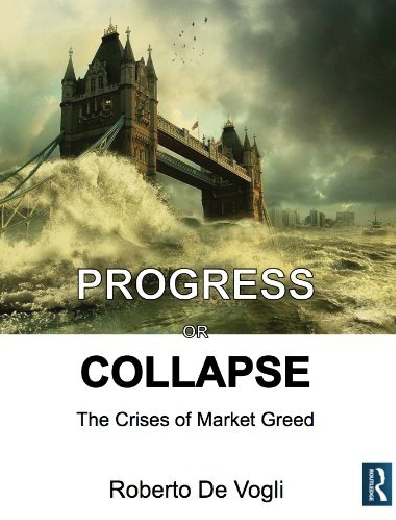Aubrey
Support the C&C proposal to the UNFCCC?
Absolutely yes!
Roberto
Roberto De Vogli, Ph.D., M.P.H.
Associate Professor in Global Health
University of Michigan
Division of Population Health, University College London
The developed world must not only help poor countries with these issues, but also commit to the principle that each world citizen has an equal entitlement to the atmosphere. This means that everyone must accept that we all have an equal right to emit the same amount of carbon dioxide. In recent years, there have been various proposals to tackle climate change on the basis of this principle.More than two decades ago, Aubrey Meyer, founder of the Global Commons Institute, proposed a model called 'contraction & convergence' to reduce greenhouse gas emissions enough to ensure “safe and stable” concentrations in the Earth’s atmosphere. The deal is this: first, the scheme sets a cap for greenhouse gas concentrations worldwide and a date by which targets should be achieved (e.g. 350 ppm by 2050.) Then, it ensures that the mechanism used to accomplish this target is fair by dividing the sum of greenhouse gas emissions between all the people of the world, and allocating to each nation, on the basis of its population, a respective quota (contraction). The model foresees that, over time, the carbon targets of developed and developing countries converge to a common per capita pollution level, with all countries accepting the same emission goal consistent with a safe target of 350 ppm globally (convergence.) The global “carbon cake” would be shared between the different nations of the world in the form of “tradable entitlements”, with individual countries negotiating their own quotas proportional to national populations. While converging towards equality of pollution, nations that want to produce more carbon dioxide than their share would be obliged to buy unused quota from other nations. The mechanism also permits trading so that developing countries unable to use up their entire entitlements can sell them to rich nations in exchange, for example, for projects of development, health and education.
Some free marketeers and neo-conservatives, while recognizing that climate change is not a hoax, find the “contraction & convergence strategy” too “biased” towards the developing world’s priorities. After all, they have never made a secret of their predisposition to have the interests of the elite in rich societies at heart. Their argument, however, blissfully ignores that rich countries account for only 15% of the world’s population, yet emit about 50% of carbon dioxide emissions worldwide. Others have also criticized “contraction & convergence” for being utopian and unrealistic. It is true that nobody knows whether this scheme will ever work. What we do know, however, is that rich countries must play a leadership role in the fight against climate change. As Speth explained: “The lion’s share of the blame must go to the wealthy, industrial countries and especially to the United States.” He then added, “if the United States and other major governments had wanted a strong, effective international process, they could have created one. If they wanted treaties with real teeth, they could have shepherded them into being.” It is true that a binding agreement, such as the one proposed by Meyer, would require a massive political and economic undertaking at the global level. But there are no other choices left if we are to prevent irreversible climate change. As the American libertarian socialist, Murray Bookchin, once put it: “If we do not do the impossible, we shall be faced with the unthinkable.”
Global climate change agreements such as “contraction & convergence” must be adopted with reforms to reduce poverty and inequalities. One does not need to be a Marxist to understand why. Calling for a more equitable distribution of resources is not a wish for a classless society where all wealth is equally shared or is concentrated in the hands of a big government. Instead, it is a pragmatic strategy to overcome the climate change impasse. Affluent nations must recognize that any global environmental treaty that is perceived as unfair, or that does not take into account the urgent needs of people in the developing world, is destined to fail. With the world facing an ecological crisis without borders, nothing has become more practical for the West than turning its past wrongs into rights by assisting developing nations in assembling their ecological programs, eradicate poverty and educate women. This would not just be an act of generosity, but also of enlightened self-interest. The reason is simple. As Dipesh Chakrabarty once observed, “unlike the crises of capitalism, there are no lifeboats for the rich and the privileged” that will save them from a future climate disaster.
Progress or Collapse
Roberto De Vogli


